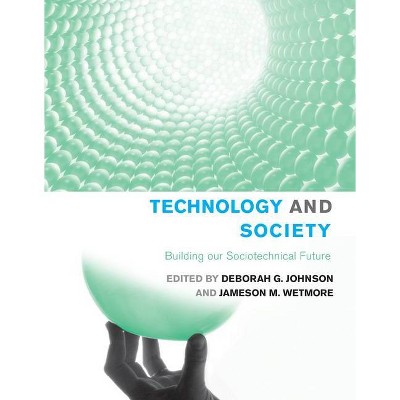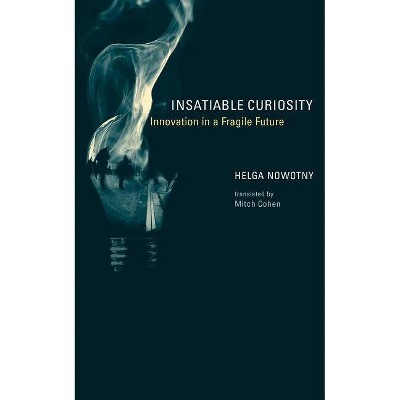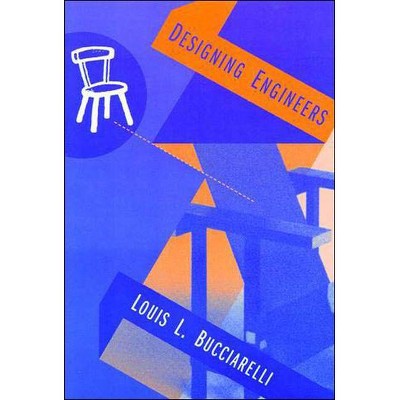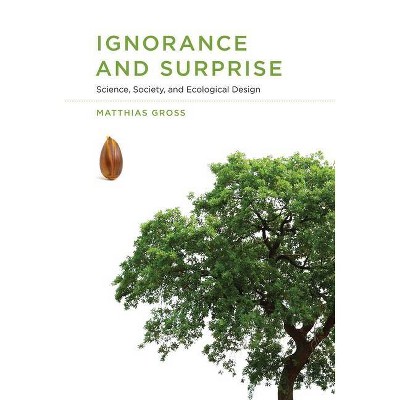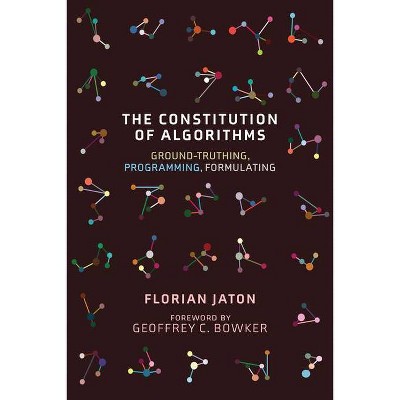Shaping Technology / Building Society - (Inside Technology) by Wiebe E Bijker & John Law (Paperback)
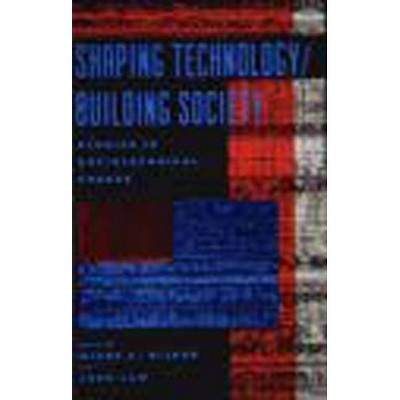
Similar Products
Products of same category from the store
AllProduct info
<p/><br></br><p><b> About the Book </b></p></br></br>Building on the influential book The Social Construction of Technological Systems, this volume carries forward the project of creating a theory of technological development and implementation that is strongly grounded in both sociology and history.<p/><br></br><p><b> Book Synopsis </b></p></br></br><b>Building on the influential book The Social Construction of Technological Systems, this volume carries forward the project of creating a theory of technological development and implementation that is strongly grounded in both sociology and history. </b><p>Technology is everywhere, yet a theory of technology and its social dimension remains to be fully developed. Building on the influential book <i>The Social Construction of Technological Systems</i>, this volume carries forward the project of creating a theory of technological development and implementation that is strongly grounded in both sociology and history. The 12 essays address the central question of how technologies become stabilized, how they attain a final form and use that is generally accepted. The essays are tied together by a general introduction, part introductions, and a theoretical conclusion. The first part of the book examines and criticizes the idea that technologies have common life cycles; three case studies cover the history of a successful but never produced British jet fighter, the manipulation of patents by a French R&D company to gain a market foothold, and the managed development of high-intensity fluorescent lighting to serve the interests of electricity suppliers as well as the producing company. The second part looks at broader interactions shaping technology and its social context: the question of who was to define steel, the determination of what constitutes radioactive waste and its proper disposal, and the social construction of motion pictures as exemplified by Thomas Edison's successful development of the medium and its commercial failure. The last part offers theoretical studies suggesting alternative approaches to sociotechnologies; two studies argue for a strong sociotechnology in which artifact and social context are viewed as a single seamless web, while the third looks at the ways in which a social program is a technology.</p><p/><br></br><p><b> About the Author </b></p></br></br>Wiebe E. Bijker is Professor at Maastricht University and the author of <i>Of Bicycles, Bakelites, and Bulbs: Toward a Theory of Sociotechnical Change</i> (MIT Press) and other books. <p/>John Law is Professor in Sociology at the University of Keele, Staffordshire, England. <p/>Wiebe E. Bijker is Professor at Maastricht University and the author of <i>Of Bicycles, Bakelites, and Bulbs: Toward a Theory of Sociotechnical Change</i> (MIT Press) and other books. <p/>John Law is Professor in Sociology at the University of Keele, Staffordshire, England. <p/>John Law is Professor in Sociology at the University of Keele, Staffordshire, England. <p/>Michel Callon, developer (with Bruno Latour and others) of Actor Network Theory, is Professor at the École des mines de Paris and a Researcher at the Centre de Sociologie de l'innovation there. <p/>Geoffrey C. Bowker is Professor and Director of the Evoke Lab at the University of California, Irvine. He is the coauthor (with Susan Leigh Star) of <i>Sorting Things Out: Classification and Its Consequences</i> and the author of <i>Memory Practices in the Sciences</i>, both published by the MIT Press. <p/>Wiebe E. Bijker is Professor at Maastricht University and the author of <i>Of Bicycles, Bakelites, and Bulbs: Toward a Theory of Sociotechnical Change</i> (MIT Press) and other books. <p/>Thomas J. Misa is ERA-Land Grant Professor of the History of Technology at the University of Minnesota, where he directs the Charles Babbage Institute. His books include <i>Modernity and Technology</i> (coedited with Philip Brey and Andrew Feenberg; MIT Press, 2003). <p/>Bruno Latour, a philosopher and anthropologist, is the author of <i>We Have Never Been Modern</i>, <i>An Inquiry into Modes of Existence</i>, <i>Facing Gaia</i>, <i>Down to Earth</i>, and many other books. He coedited (with Peter Weibel) the previous ZKM volumes <i>Making Things Public</i>, <i>ICONOCLASH</i>, and <i>Reset Modernity!</i> (all published by the MIT Press). <p/>Bruno Latour, a philosopher and anthropologist, is the author of <i>We Have Never Been Modern</i>, <i>An Inquiry into Modes of Existence</i>, <i>Facing Gaia</i>, <i>Down to Earth</i>, and many other books. He coedited (with Peter Weibel) the previous ZKM volumes <i>Making Things Public</i>, <i>ICONOCLASH</i>, and <i>Reset Modernity!</i> (all published by the MIT Press). <p/>Trevor Pinch is Goldwin Smith Professor of Science and Technology Studies at Cornell University and coeditor of <i>The Social Construction of Technological Systems: New Directions in the Sociology and History of Technology </i>(anniversary edition, MIT Press). <p/>John Law is Professor in Sociology at the University of Keele, Staffordshire, England. <p/>Wiebe E. Bijker is Professor at Maastricht University and the author of <i>Of Bicycles, Bakelites, and Bulbs: Toward a Theory of Sociotechnical Change</i> (MIT Press) and other books.
Price History
Cheapest price in the interval: 34.99 on November 8, 2021
Most expensive price in the interval: 34.99 on December 20, 2021
Price Archive shows prices from various stores, lets you see history and find the cheapest. There is no actual sale on the website. For all support, inquiry and suggestion messagescommunication@pricearchive.us
